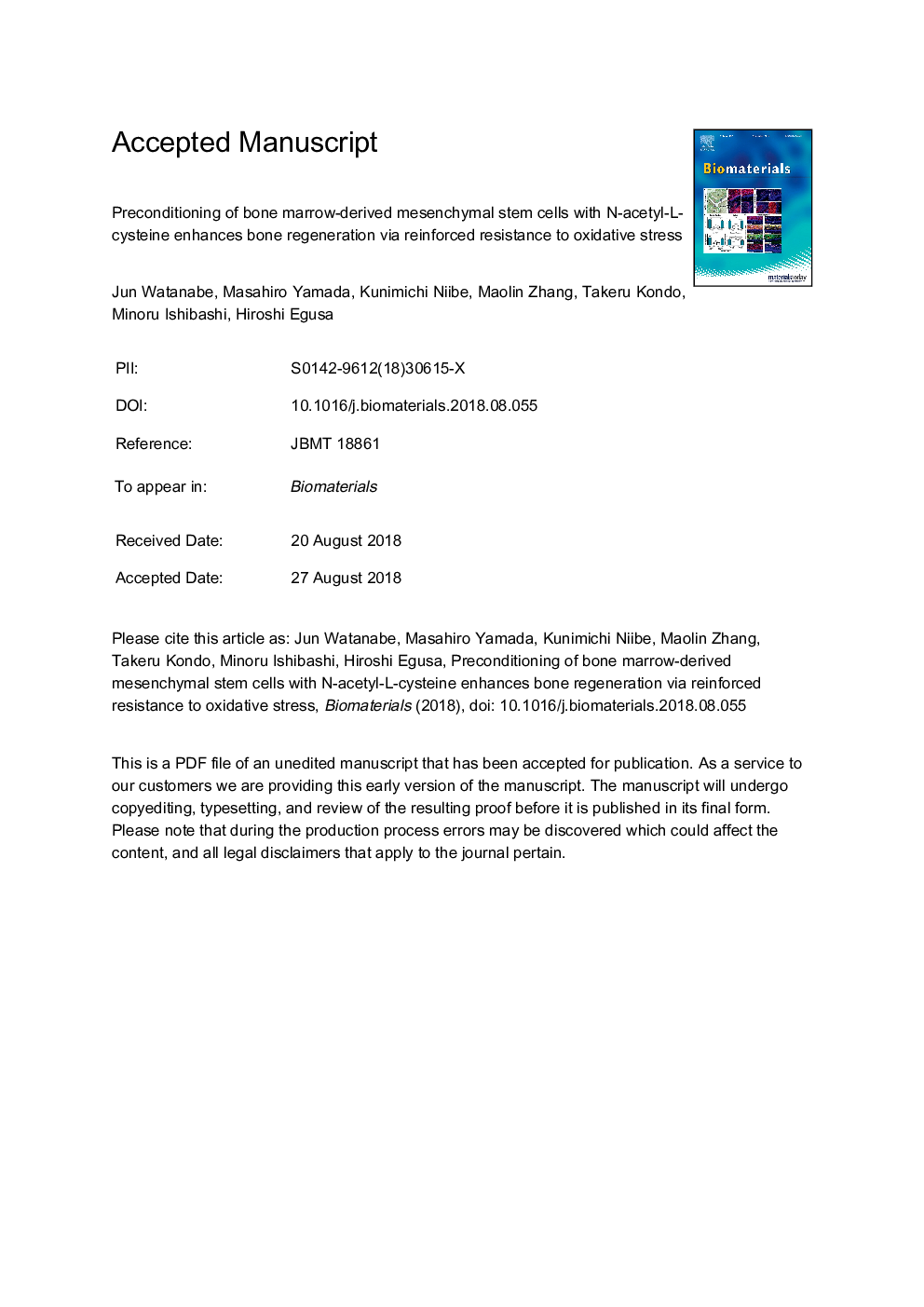| Article ID | Journal | Published Year | Pages | File Type |
|---|---|---|---|---|
| 10149911 | Biomaterials | 2018 | 44 Pages |
Abstract
Oxidative stress on transplanted bone marrow-derived mesenchymal stem cells (BMSCs) during acute inflammation is a critical issue in cell therapies. N-acetyl-L cysteine (NAC) promotes the production of a cellular antioxidant molecule, glutathione (GSH). The aim of this study was to investigate the effects of pre-treatment with NAC on the apoptosis resistance and bone regeneration capability of BMSCs. Rat femur-derived BMSCs were treated in growth medium with or without 5â¯mM NAC for 6â¯h, followed by exposure to 100â¯Î¼Mâ¯H2O2 for 24â¯h to induce oxidative stress. Pre-treatment with NAC significantly increased intracellular GSH levels by up to two fold and prevented H2O2-induced intracellular redox imbalance, apoptosis and senescence. When critical-sized rat femur defects were filled with a collagen sponge containing fluorescent-labeled autologous BMSCs with or without NAC treatment, the number of apoptotic and surviving cells in the transplanted site after 3 days was significantly lower and higher in the NAC pre-treated group, respectively. By the 5th week, significantly enhanced new bone formation was observed in the NAC pre-treated group. These data suggest that pre-treatment of BMSCs with NAC before local transplantation enhances bone regeneration via reinforced resistance to oxidative stress-induced apoptosis at the transplanted site.
Related Topics
Physical Sciences and Engineering
Chemical Engineering
Bioengineering
Authors
Jun Watanabe, Masahiro Yamada, Kunimichi Niibe, Maolin Zhang, Takeru Kondo, Minoru Ishibashi, Hiroshi Egusa,
